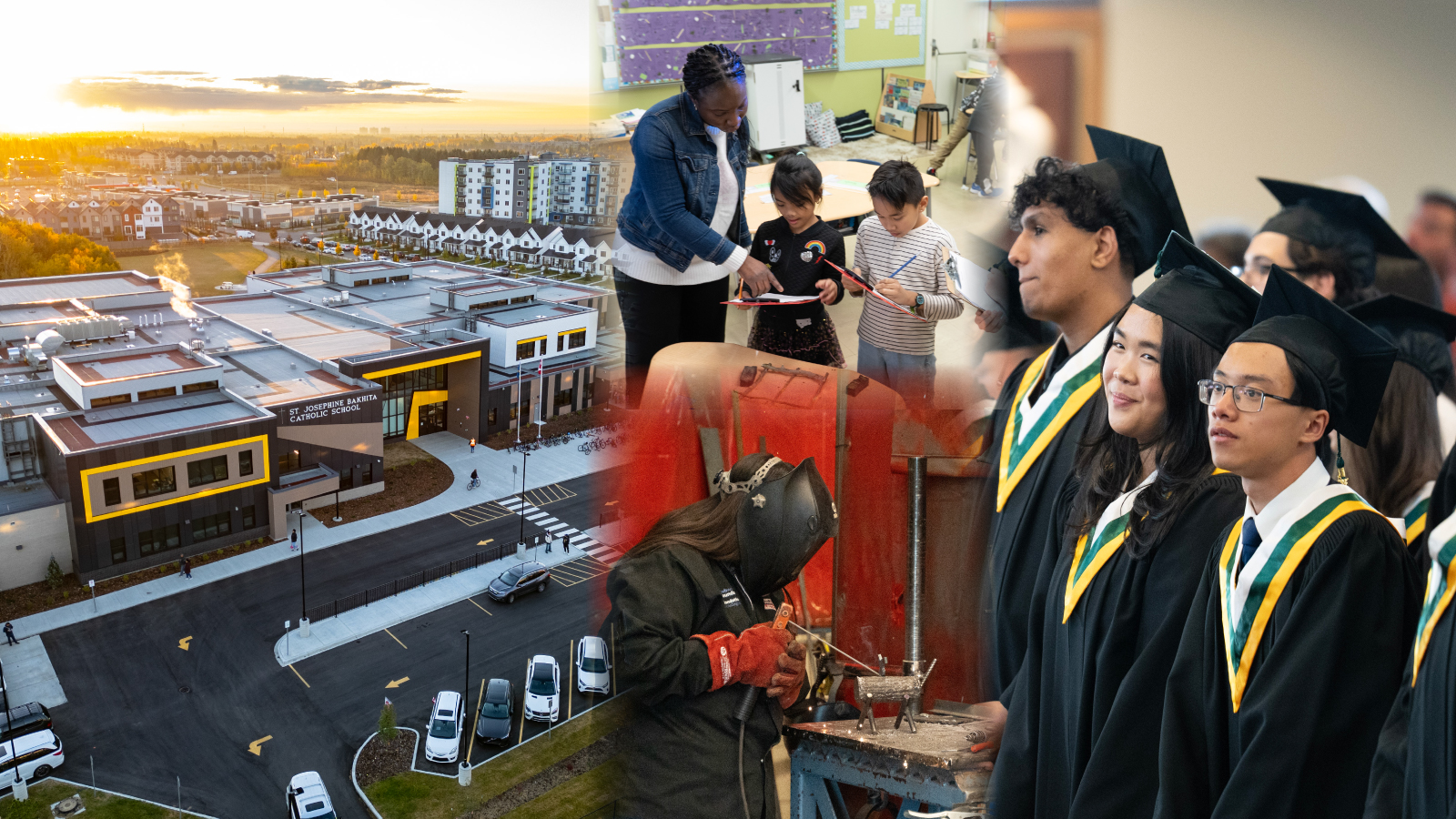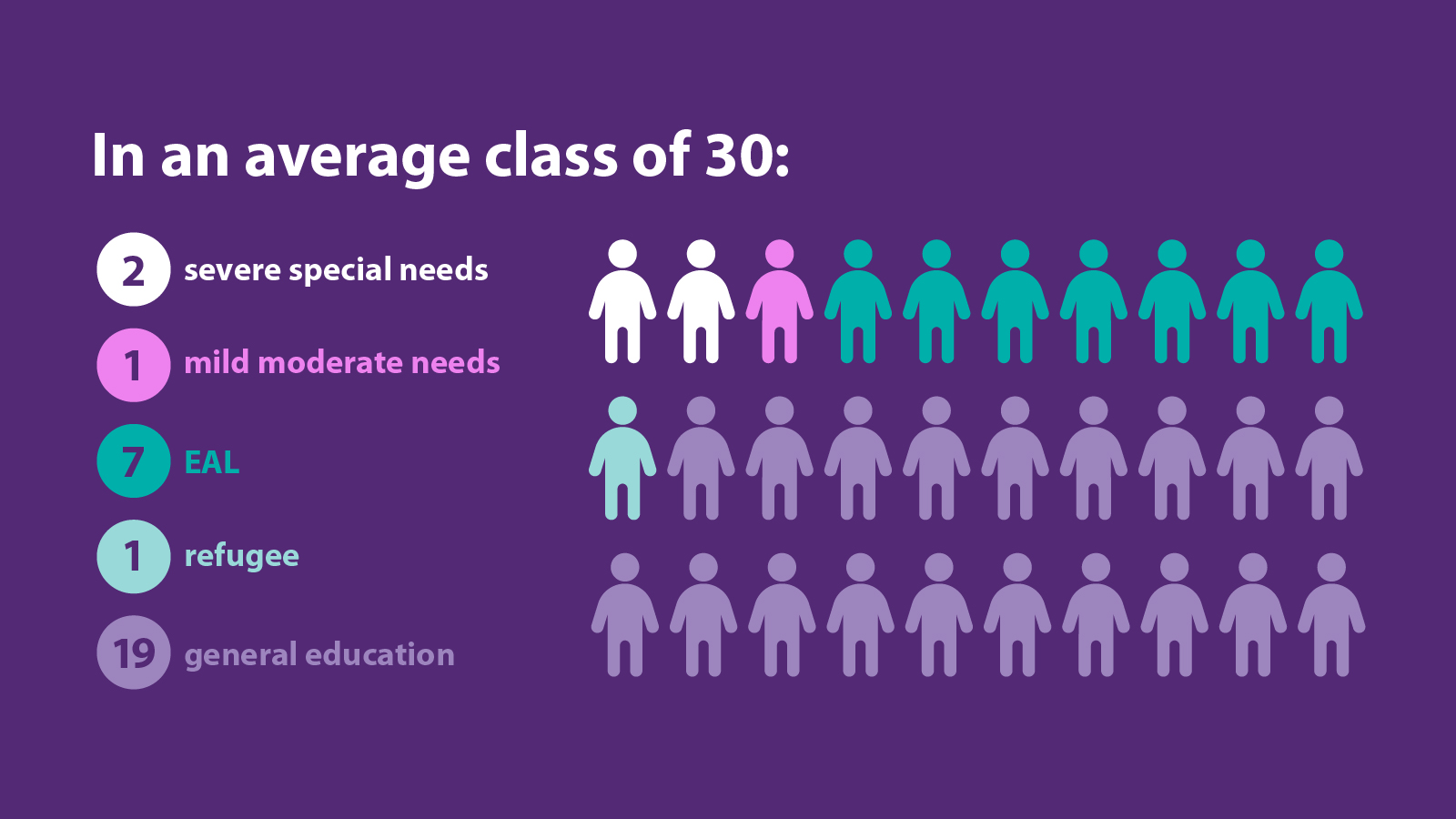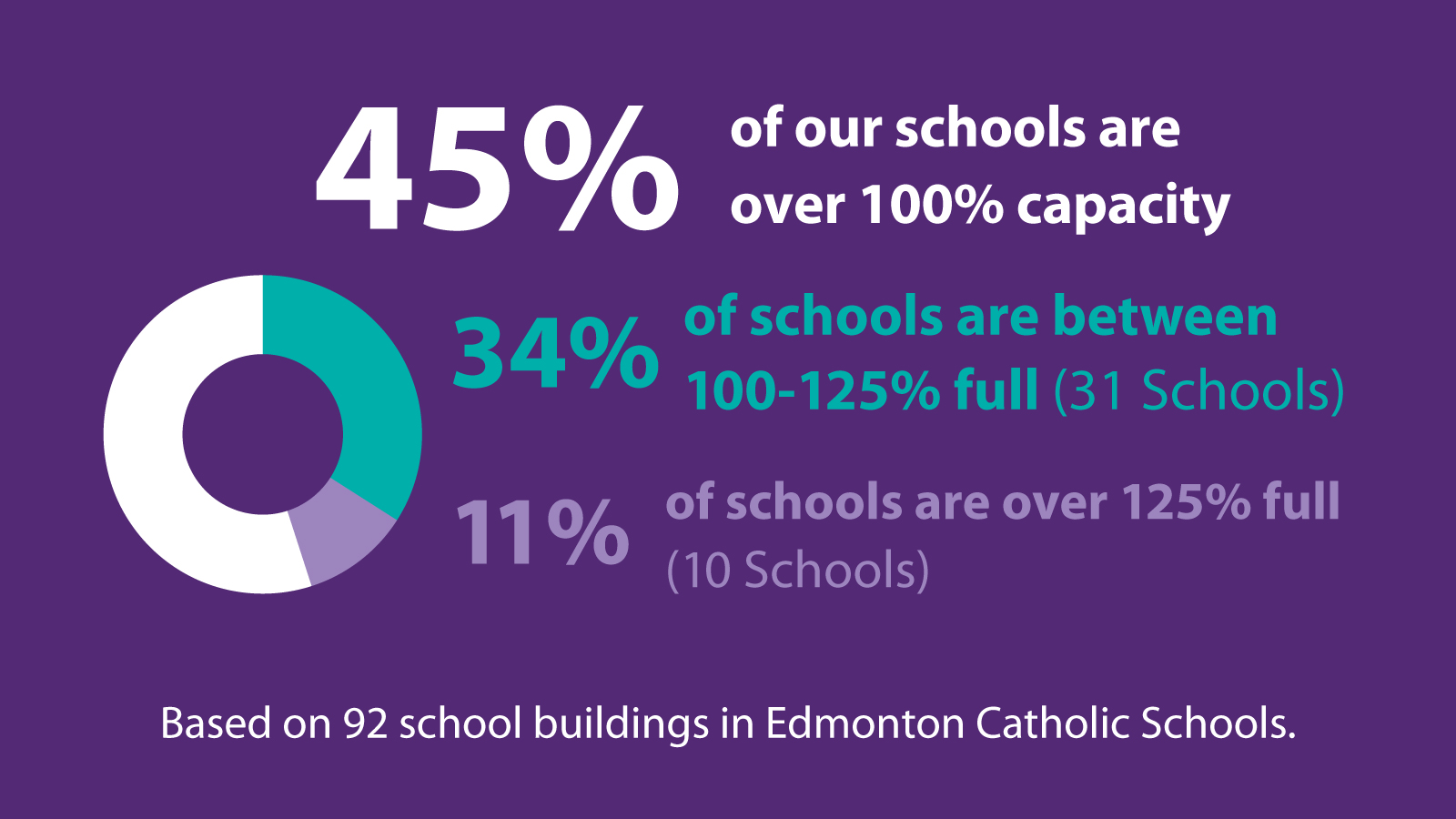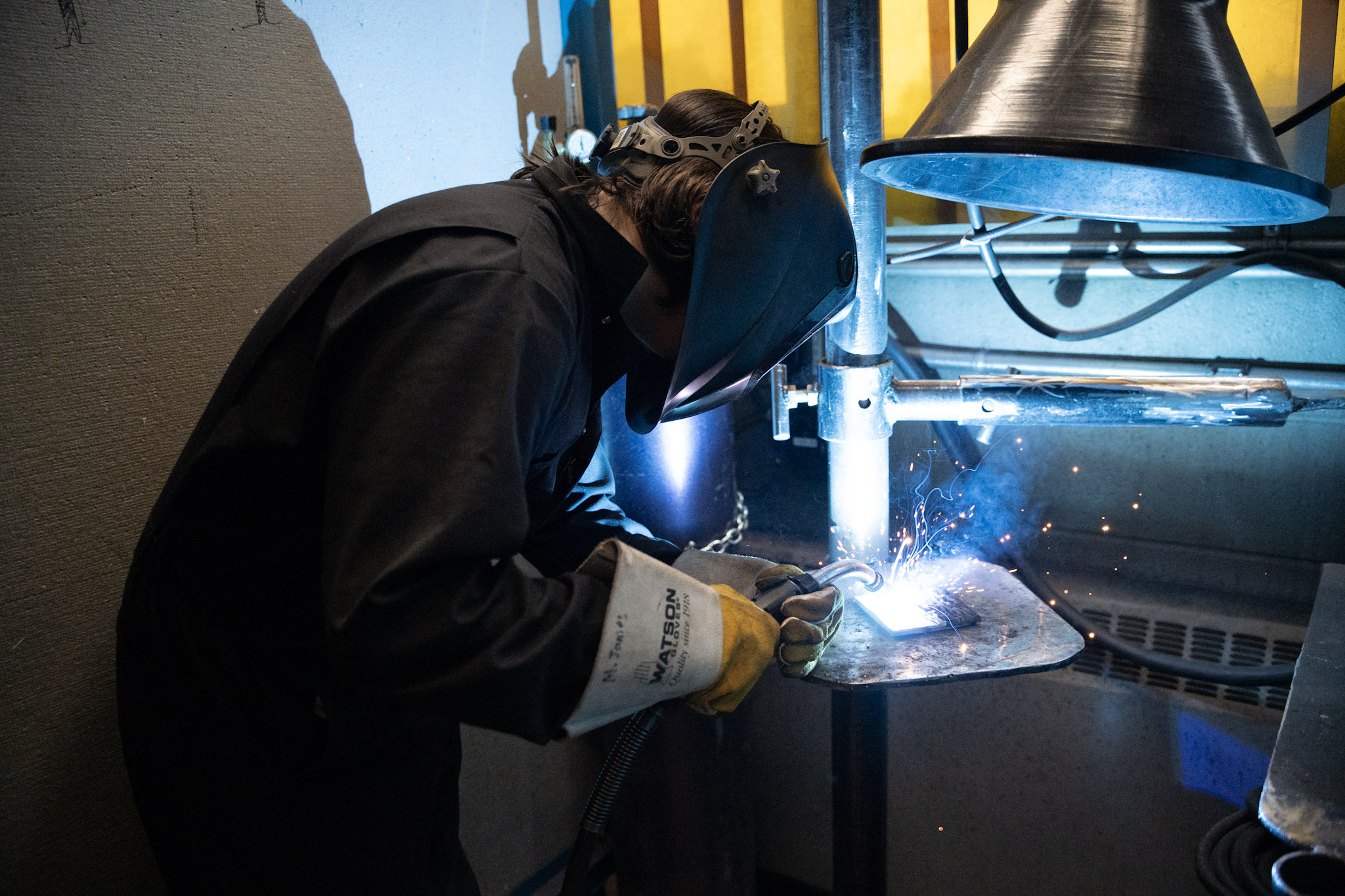February 12, 2026
ECSD Board of Trustees Advocacy 2025-2026
The Board of Trustees plays an active role in advocating for Catholic education in our community. Through ongoing engagement with families, government, and the public, the Board addresses timely issues that affect our Division. The advocacy points below provide context and key messages to support these conversations and reflect the Board’s commitment to strong relationships with elected officials, our Catholic community, and education partners.
Classroom Complexity
The points below reflect the growing complexity of today’s classrooms and the increasing supports required to meet the diverse academic, social, emotional, and mental health needs of students and staff.
- Inclusive education policies and framework do not reflect today’s school and classroom contexts.
- Edmonton Catholic Schools continues to see exponential growth in the number of students with English as an Additional Language.
- Many of these students bring with them social and emotional trauma from their country of origin and require specialized behaviour supports, mental health supports, and learning supports.
- Classroom complexity has resulted in increased workplace injuries to our school-based staff, including teachers, administrators, and support staff.
- Increased diagnosis at earlier ages has reinforced the importance of early intervention. Due to limited funding, we are unable to accept all students and begin the much-needed early intervention.
- The wellness and mental health needs of our students continue to be a primary concern for our Division. There are extensive waitlists for child psychiatric services and crisis support.
Key Data 2025
6.3%Severe and Special Needs (3,203 students) | 3.9%Mild/Moderate Special Needs (2,004 students) | 0.07%Gifted and Talented (38 Students) |
2.9%Refugee Students (1,461 students) | 22%English as an Additional Language (EAL) |
(Image text: In an average class of 30 students, 2 severe special needs, 1 mild/moderate special needs, 7 English as an Additional Language, 1 refugee, and 19 general education.)
Average Staff to Student Ratio Per Classroom
4Individualized Program Plans | 1Teacher | 0.4Educational or Therapeutic Assistant |
|---|
Solutions
- Updated framework and policies to support learning for all students and safety in schools.
- A funding model that robustly supports the diagnosis of needs and the staffing of schools to meet those needs.
- Timely access to mental health, psychiatric, and crisis services.
- Funding for English as an Additional Language (EAL) students that meets all their needs as long as they need it.
- Ability to expand and adapt early intervention programs through increased funding so that programs are accessible to all who need them and responsive to the evolving needs. Program Unit Funding (PUF) should once again include OT and behavioural needs.
Infrastructure
As demand for Catholic education increases, we are running out of space. We receive only a fraction of the modular classrooms we request. Modulars are a more immediate and cost-effective solution to overcrowding in schools. Streamlined approval processes for modular classrooms, with announcements returned to January, allow the nine-month timeline needed for installation before September.
We requested 59 modulars | We received 13 modulars* |
*In 2024-2025, this equalled 22%.
Planning for Growth: School Capacity (as of March 2025)
(Image text: 45% of our schools are over 100% capacity, 34% of our schools are between 100-125% full (31 schools), 11% of schools are over 125% full (10 schools). Based on 92 school buildings in ECSD.)
There is currently insufficient purpose-built space for specialized programs (e.g., trades, STEM, arts, special education) in older schools.
Solutions
- Provide significant and immediate funding for new school construction to catch up, followed by sustained investment in school builds to keep pace with population growth.
- Approval of the number of modular classrooms we request each year. We ask for what we desperately need.
Supporting Student Achievement and Growth
To ensure all students reach their full potential, the Division must provide the necessary resources, staff, and program supports. This includes high-quality curriculum materials, sufficient and well-trained educators, and access to careers, trades, and post-secondary pathway programs.
Curriculum Implementation and Resources
- New curriculum requires high-quality resources for consistent implementation. The current lack of centralized resources increases teacher workload and Divisional cost.
- The new Math curriculum digital resource is not reflective of student needs. A physical resource is required.
Staffing
- Increased demand for certificated teachers, combined with fewer applicants, has resulted in a teacher shortage that directly impacts student learning.
- Educational Assistants (EAs) are essential to supporting student needs. There is a high demand for well-trained staff.
Careers, Trades, and Dual Credit
- Careers and trades programming requires specialized spaces and specialized staff. This is expensive.
- Dual Credit courses and certificated programs support high school completion and create clear pathways to post-secondary education and future careers.
Solutions
- Targeted funding to build, staff, and resource appropriate trades learning spaces in existing schools, with a focus on these in new builds. Grow the Bridge to Teaching program to attract tradespeople to teaching.
- Cross-ministry collaboration to recruit and train teachers and EAs to meet significant HR demands.
- Expanded funding to include the annual licensing and subscription costs for digital resources, and robust and comprehensive centralized resourcing across all subjects and in all languages accessible across the province.
- A comprehensive physical resource for mathematics that demonstrates clear progressions of learning and provides adequate student practice for core instruction, and that would allow divisions to anchor professional learning.
About Edmonton Catholic Schools
Edmonton Catholic Schools is a publicly funded school division serving more than 51,000 students in 95 schools, from Pre-Kindergarten to High School. The Division is the fourth-largest school division in Alberta, and the second-largest Catholic school division west of Metropolitan Toronto. The mission of Edmonton Catholic Schools is to provide a Catholic education that inspires students to learn and that prepares them to live fully and to serve God in one another. Read more about Edmonton Catholic Schools on our Fast Facts webpage.





